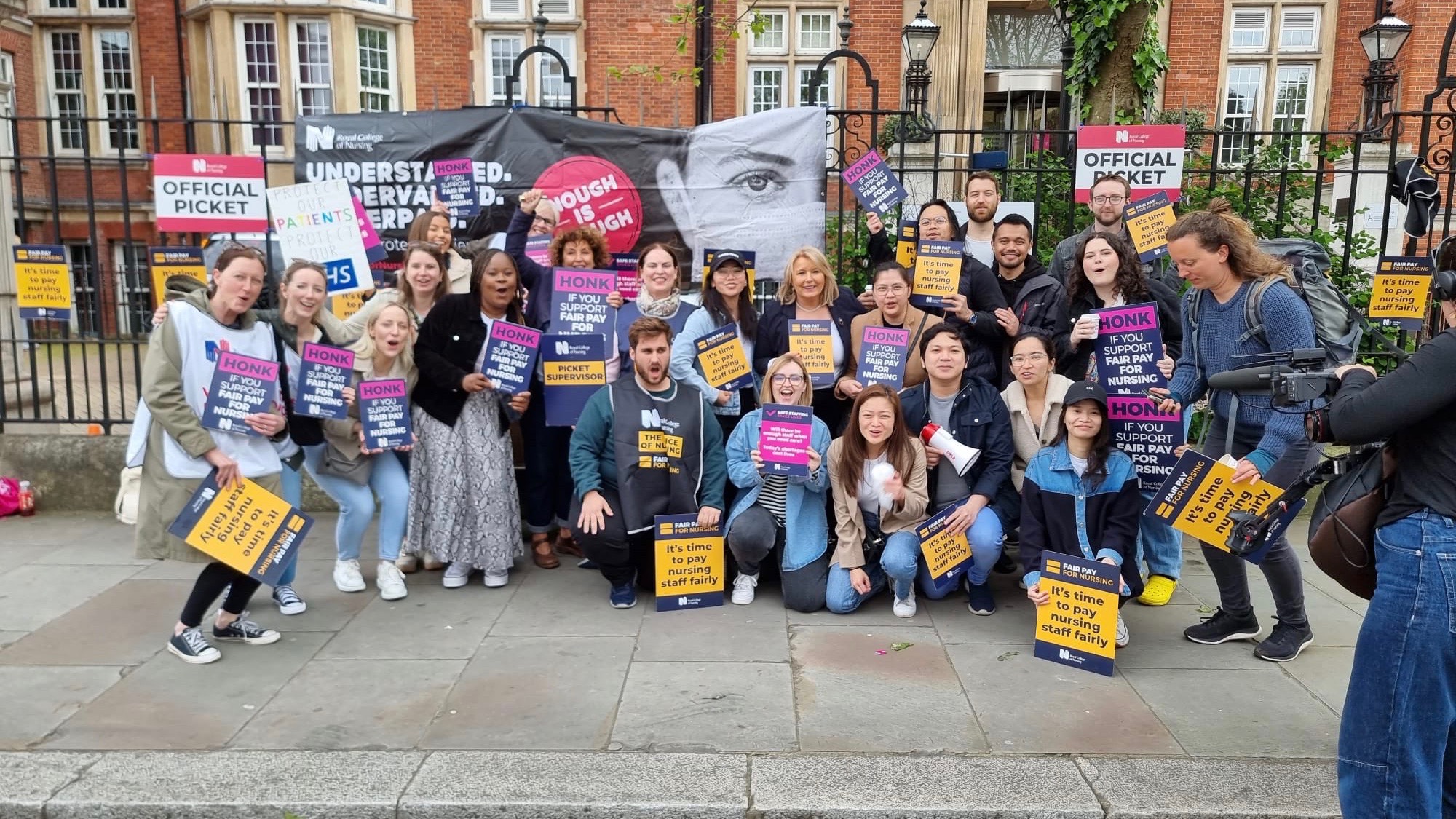Rishi Sunak’s government in the UK is on a mission to curb the wave of strikes by health workers which began at the end of 2022. In April, the majority of members of the Royal College of Nursing (RCN) and Unite the Union rejected Health Secretary Steve Barclay’s offer of a 5% salary increase and one-off payment, announcing they would continue striking for a better deal.
Instead of reopening negotiations, the government took the RCN to court over what health workers have called a “technical discrepancy” over the organization’s strike mandate. The High Court ruled in favor of the government, shortening the strike originally scheduled to take place between April 30 and May 2 to less than 24 hours. Despite the court decision, nurses’ picket lines filled all over England over the weekend.
Read: British health workers to intensify protests against meager pay hikes offered by government
The High Court’s decision highlights the anti-trade union sentiment in existing laws, says Holly Johnston from NHS Workers Say No. “It will become more and more difficult for trade unions to have lawful strike action,” she told the People’s Health Dispatch.
The government’s battle against trade unions is not taking place in the courts alone. The offer which was put forward to the trade unions was formulated in a way that made it difficult for many health workers to reject. “We can understand why some members would accept the pay offer. Because people are too poor to be able to afford to keep on striking. They are too poor not to have the lump sum in the pay package,” explains Johnston.
“The government has done that on purpose. It’s a deliberately attractive offer to some staff because they are too poor not to take it. It won’t do anything in the long term for recruitment and retention, but we can understand especially why the lower paid staff would take it,” she says.
NHS Staff Council vote result to impose government proposal
The tactic has partially paid off, it seems, as the NHS Staff Council voted in favor of the government’s offer on May 2. The RCN and Unite mirrored their members’ negative vote during the council session, but were outnumbered. The results of the Staff Council vote will lead to the imposition of the government’s offer on all health workers represented by the trade unions, but this does not mean that the health workers’ actions will stop anytime soon.
Completed! 📯
For the Staff Council nerds (of which I'm now one 🧢)….61% of the weighted votes went in favour of the pay deal. pic.twitter.com/SkDHPCJLvD
— Lawrence Dunhill (@LawrenceDunhill) May 2, 2023
The RCN is already planning a new strike ballot to begin on May 15—one that would cover the whole NHS instead of individual workplaces. If successful, the ballot would give the RCN the mandate to escalate strikes in the following six months.
“As NHS Workers Say No, we want to see more coordination between the trade unions, more solidarity actions. We do support the British Medical Association in their actions. And we do believe intensifying the strikes, coordinating the strikes, balloting across the NHS is the way to go,” says Johnston.
Even if the government’s offer is imposed on everyone, Johnston says that health workers will continue to strengthen the networks they have been building for the past years. “The unions are shifting into becoming more active unions. There’s still a long way to go, but we are seeing these internal shifts which are promising,” she explains.
In addition to that, Johnston says that the health workers continue to be backed by the public as they plan further industrial action. “People are getting more and more angry about the conditions within the NHS, but the majority of them see that it’s not the fault of individual staff members. It’s a direct result of over a decade of cuts, austerity, and deliberate underfunding of the NHS,” she points out.
People’s Health Dispatch is a fortnightly bulletin published by the People’s Health Movement and Peoples Dispatch. For more articles and to subscribe to People’s Health Dispatch, click here.





